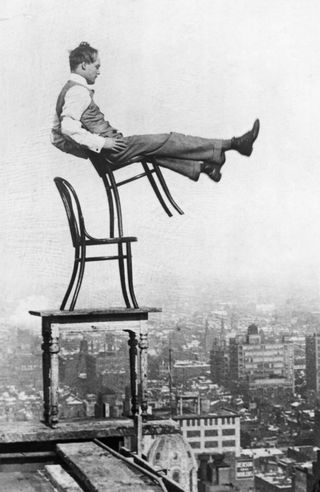John Amodeo Ph.D., MFT
Dealing with loss without losing yourself.
Posted Jan 03, 2019

Source: Wikimedia image by Gebrüder Thonet
It is often painful and disorienting when life throws us a curve ball. One of the curviest of curveballs is breaking up with a loved one who has found their way into our heart. How can we heal from the emotional pain of a sudden ending, even if it happened long ago? How can we tap into inner resources so that we might heal and move on?
The Buddha’s story of the two arrows can offer a psychologically sound view of dealing with adversity. The first arrow refers to the unpleasant things that happens to us. After a breakup, there’s the loss of the comfort and connection we’ve relied upon. Similar to the death of a loved one, there is the shocking finality of no longer sharing your life.
Realizing that the relationship didn’t match our hopes undermines our sense of reality. Something we thought was solid and secure turns out to be unstable. If the separation was triggered by a betrayal or unilateral decision, we may feel especially traumatized and vulnerable. Unable to wrap our mind around what happened and having no voice in the matter can leave us feeling disrespected, powerless, and unspeakably sad.
Grieving is our body’s way of healing from pain. We need to find a middle path to deal skillfully with our feelings of loss so that we neither avoid them nor get overwhelmed by them. Finding the right distance from feelings is one aspect of focusing, developed by Eugene Gendlin, which helps us be gentle with our emotional life.
What’s Wrong With Me?
As I mentioned, the first arrow is life’s unpredictability piercing through our comfort zone—the shock, the loss, the sorrow. But it is the second arrow that generates the bulk of our suffering. This arrow is the one we direct toward ourselves, oftentimes without our full awareness.
We have little control over the unavoidable arrows that life shoots at us. We have more control over the second arrow—the one that comes from within. This is the arrow of self-criticism, self-hatred, and shame. This self-inflicted wound makes our grieving more complicated and prolonged.
The pain of an unavoidable loss—“necessary losses,” as author Judith Viorst calls them—is intensified by the lingering suffering created by self-blame and shame. Not only do we feel grief and sorrow, but we conclude that something is wrong with us for having these feelings. We may be consumed by repetitive thoughts that we’re somehow to blame for the situation, or that there must be something wrong with us, or that we shouldn’t be feeling so distressed. Our self talk might be:
- How did I screw up?
- I should be over this by now!
- Why can’t I let go?
- What’s wrong with me?
- How did I create this?
- I’m a loser and a failure.
It is possible that we had some responsibility in a breakup. But there’s a crucial difference between blaming ourselves and taking responsibility for what might have been our part. Being paralyzed by self-blame freezes our ability to soften into our grief and inquire into how things got off track.
For example, perhaps we didn’t listen attentively when our partner voiced complaints. There may have been misattunements or miscommunication that we contributed to. Did we cling to assumptions and not ask enough questions? Did the relationship wither from neglect?
If we’re paralyzed by shame—convinced that we’re flawed—we’re not inclined to learn from our experience. We may sink into depression and hopelessness. Or we may shoot the arrow at the other person—blaming them and getting stuck in revenge fantasies and recriminations that perpetuate our suffering.
Another unfortunate aspect of self-criticism and toxic shame is that it blocks us from recognizing positive things about ourselves. Can we validate how we opened our heart and took the risk to love, despite the unwanted outcome? Can we differentiate our toxic shame from a healthy shame (or healthy guilt) that might help us grow?
Validating Ourselves
In her classic book “The Couples Journey,” Dr. Susan Campbell writes that some relationships are learning relationships rather than long-term, mated ones. They prepare us for a better relationship to come.
Life presents us with a series of learning experiences. If we can be mindful about how we’re aiming the second arrow toward ourselves, we have more control over whether we release that toxic arrow or hold ourselves with respect and dignity as we grieve our loss and learn from the experience.
Separation, loss, and betrayal are painful enough. If we add self-blame and toxic shame to the mix, we deepen our suffering.
Our challenge is to validate our inner worth and value regardless of whatever happens to us. Bringing mindfulness to difficult situations, we can differentiate unavoidable pain from self-generated suffering. Holding ourselves with dignity, we can grieve, learn, and move forward with our self-respect intact, even if temporarily bruised.
No Comments Yet